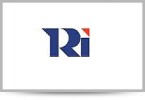Filter interviews by
Mech-well Industries Production Engineer Interview Questions and Answers
Mech-well Industries Production Engineer Interview Experiences
2 interviews found
(4 Questions)
- Q1. Tell us about different welding technology.
- Ans.
Different welding technologies include arc welding, gas welding, and laser welding.
Arc welding uses an electric arc to create heat and join metals together.
Gas welding involves the use of a fuel gas and oxygen to create a flame for melting and joining metals.
Laser welding utilizes a high-powered laser beam to melt and fuse metals together.
Other welding technologies include resistance welding, friction welding, and ultr...
- Q2. Different types of material grades
- Ans.
Material grades refer to different classifications of materials based on their composition and properties.
Material grades are used to categorize materials based on their chemical composition, mechanical properties, and other characteristics.
Common types of material grades include steel grades (e.g. ASTM A36, AISI 304), aluminum grades (e.g. 6061-T6, 7075-T651), and plastic grades (e.g. ABS, PVC).
Material grades help in...
- Q3. Difference between MIG & TIG welding
- Ans.
MIG and TIG welding are two different welding processes used in production engineering.
MIG stands for Metal Inert Gas welding and TIG stands for Tungsten Inert Gas welding.
MIG welding uses a consumable wire electrode and a shielding gas to create an electric arc between the electrode and the metal being welded.
TIG welding uses a non-consumable tungsten electrode and a shielding gas to create an electric arc between the...
- Q4. Different between SS & MS material
- Ans.
SS and MS materials differ in terms of composition, properties, and applications.
SS (Stainless Steel) is an alloy of iron and chromium, known for its corrosion resistance.
MS (Mild Steel) is a carbon steel with low carbon content and higher ductility.
SS is more expensive than MS due to its higher corrosion resistance.
MS is commonly used in construction, while SS is preferred in industries like food processing and medica...
Interview Preparation Tips
(4 Questions)
- Q1. Related to powerplant
- Q2. Related to welding
- Q3. Related to SAP B1 Hana verient
- Q4. Related to Industrial Engineering
Interview Preparation Tips
Top trending discussions






Interview questions from similar companies

I applied via Naukri.com and was interviewed in Jun 2024. There was 1 interview round.
(2 Questions)
- Q1. Was your performance evaluated in your previous company?
- Ans.
Yes, my performance was evaluated through regular performance reviews and feedback sessions.
Performance evaluations were conducted on a quarterly basis.
Feedback sessions were held to discuss strengths and areas for improvement.
Achievements and goals were reviewed to track progress.
Received positive feedback on project completion and problem-solving skills.
- Q2. What were your strengths in your previous company?
- Ans.
My strengths in my previous company included strong problem-solving skills, attention to detail, and the ability to work well under pressure.
Strong problem-solving skills - I was able to quickly identify and resolve production issues to minimize downtime.
Attention to detail - I consistently ensured that all production processes were carried out accurately and efficiently.
Ability to work well under pressure - I thrived ...
Interview Preparation Tips
- Basic

I applied via Walk-in and was interviewed in Aug 2023. There were 3 interview rounds.

Group discussion is when a group of people comes together to discuss a certain topic. Many Recruiters use group discussion (GD) to test a candidate's communication skills, leadership skills, test topic knowledge, etc. There are also two other types of GD that test the lateral thinking of a candidate.
Case study is an in-depth study of one person, group, or event. In a case study, nearly every aspect of the subject's life and history is analyzed to seek patterns and causes of behavior
Interview Preparation Tips
As a qualified Mechanical Engineer, I am adept in application development & enhancement and believe that will prove to be an asset for the company.
Please take a minute to go through the attached Resume for your consideration. It would be a pleasure if I can hear back from you regarding my job application.

I applied via Naukri.com and was interviewed in Jul 2022. There were 3 interview rounds.

(2 Questions)
- Q1. What are the lathe machine?
- Ans.
Lathe machines are tools used for shaping and cutting materials such as metal and wood.
Lathe machines rotate a workpiece on its axis while a cutting tool is applied to shape it.
They can be used for various operations such as drilling, knurling, and sanding.
There are different types of lathe machines such as engine lathes, turret lathes, and CNC lathes.
Lathe machines are commonly used in manufacturing and metalworking i...
- Q2. Types lathe , types milling
GD is a discussion that tests the candidate skills such as leadership skills, commutation skills, social skills, behaviour, politeness, teamwork.
Interview Preparation Tips
- Tool Room
- Production
- Aoutcad
- Nx unigrphics
Work-life balance
Show Up early
Be confident
Ask for help
Enjoy
Challenge yourself. Say yes to the things that scare you.
Focus on your strengths. Focus on your strengths and use that as an advantage to capitalize on the tasks at hand.

An aptitude test is designed to assess an individual's ability to perform certain tasks or react to a range of different situations. These tests are often used by educational institutions and employers to evaluate potential candidates' skills, talents, and potential for success in a specific role or academic program. Here are some key details about aptitude tests:
1. **Purpose**: Aptitude tests are used to measure a variety of skills, including logical reasoning, verbal ability, numerical skills, and spatial awareness. They help to identify strengths and weaknesses and predict future performance.
2. **Types**:
- **Verbal Reasoning**: Assesses understanding and reasoning using concepts framed in words.
- **Numerical Reasoning**: Tests ability to work with numbers, including basic arithmetic, data interpretation, and logical problem-solving.
- **Abstract Reasoning**: Evaluates the ability to identify patterns, logical rules, and trends in new data.
- **Mechanical Reasoning**: Measures understanding of mechanical and physical principles.
- **Spatial Reasoning**: Assesses the ability to visualize and manipulate objects.
3. **Format**: Aptitude tests can be multiple-choice, true/false, or involve practical problem-solving tasks. They are often timed, with specific sections dedicated to each type of reasoning.
4. **Preparation**:
- **Practice Tests**: Taking practice tests helps familiarize with the format and types of questions.
- **Study Guides**: Reviewing basic concepts in mathematics, grammar, and logical reasoning.
- **Skills Development**: Enhancing skills through puzzles, reading, and other related activities.
5. **Usage**:
- **Recruitment**: Employers use aptitude tests to screen job applicants and find the best fit for a role.
- **Education**: Schools and colleges use these tests for admissions, placement, and identifying areas for student improvement.
- **Career Counseling**: Helps individuals understand their strengths and areas for improvement, guiding career choices.
6. **Scoring**: Scores are typically presented as percentiles, showing how a test-taker compares to a norm group. Higher scores indicate better performance relative to the norm group.
If you have specific questions about a certain type of aptitude test or need preparation tips, feel free to ask!
(2 Questions)
- Q1. Tell me about yourself.Tip: Provide a brief overview of your professional background, focusing on experiences relevant to the job you're applying for. Highlight your key achievements and skills.
- Q2. Know YourselfAssess and interest.
Interview Preparation Tips

Interview Questionnaire
1 Question
- Q1. Relates to project & last company experience

Interview Questionnaire
1 Question
- Q1. Mostly they checking your presence in interview and asking about your experience for particular field and background.

I applied via Recruitment Consulltant and was interviewed in Mar 2022. There were 2 interview rounds.
(1 Question)
- Q1. Basics of Multi Threading
Data structures and Algorithms
Interview Preparation Tips


(5 Questions)
- Q1. Embedded C questions
- Q2. Watchdog Timer, I2C, SPI, UART
- Q3. Design State Machine
- Ans.
Design a state machine to model system behavior based on inputs and states.
Define states: Identify all possible states the system can be in (e.g., 'Idle', 'Processing', 'Completed').
Determine transitions: Specify how the system moves from one state to another based on events (e.g., 'Start' event moves from 'Idle' to 'Processing').
Input handling: Define how inputs affect state transitions (e.g., 'Cancel' input moves fro...
- Q4. Mix Sound Driver
- Q5. Renesas related
Interview Preparation Tips
Mech-well Industries Interview FAQs
Tell us how to improve this page.
Interview Questions for Popular Designations
- Senior Engineer Interview Questions
- Project Engineer Interview Questions
- Junior Engineer Interview Questions
- Production Manager Interview Questions
- Production Officer Interview Questions
- Graduate Engineer Interview Questions
- Executive Engineer Interview Questions
- Senior Production Engineer Interview Questions
- Show more
Overall Interview Experience Rating
based on 2 interview experiences
Production Engineer Interview Questions from Similar Companies
Mech-well Industries Production Engineer Reviews and Ratings
based on 2 reviews
Rating in categories
|
Design Engineer
11
salaries
| ₹3.8 L/yr - ₹7.5 L/yr |
|
Production Engineer
7
salaries
| ₹2.9 L/yr - ₹4.1 L/yr |
|
Senior Design Engineer
6
salaries
| ₹4.8 L/yr - ₹8 L/yr |
|
Electrical Maintenance Engineer Supervisor
5
salaries
| ₹1.7 L/yr - ₹2.3 L/yr |
|
Site Engineer Mechanical
5
salaries
| ₹2.2 L/yr - ₹4.5 L/yr |

Huawei Technologies

Indorama

Marelli

Enco Engineers Combine
- Home >
- Interviews >
- Mech-well Industries Interview Questions










